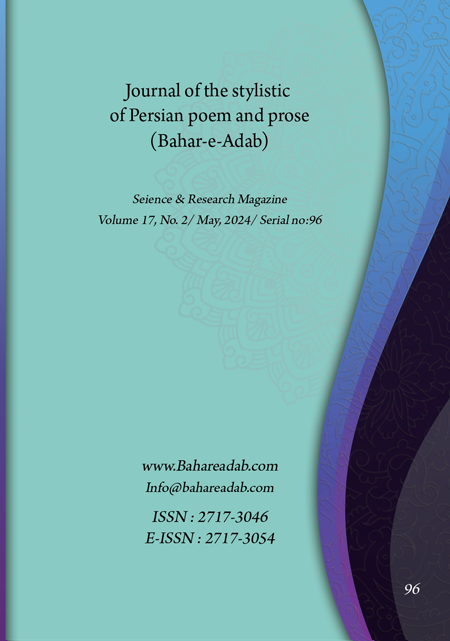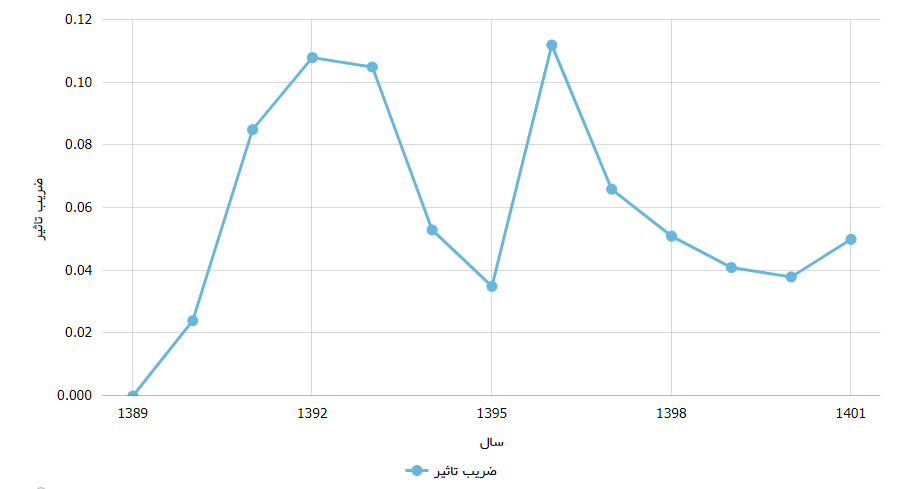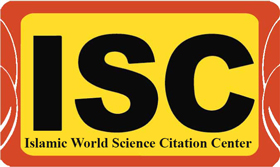Contact Us
address: Tehran Post Box 1558-14665Email: info@bahareadab.com
About the Journal
The Journal of the Stylistic of Persian Poem and Prose (former Bahar-e-Adab) is an open-access monthly publication focusing on the specialized field of Persian prose and verse stylistics. Founded by Dr. Omid Majd, this private monthly magazine published its first issue in the autumn of 2008 and, with the valuable scientific credentials of esteemed members of the editorial board, as well as the rich and valuable articles submitted by distinguished researchers, it achieved a valuable scientific-research rating in the summer of 2009 after a year and a half. This journal follows the Committee on Publication Ethics (COPE) and complies with the highest ethical standards by ethical laws. read more about this publication| Publication start year | 2008 |
| ISC Quartile | Q2 |
| ISC | 0.152 |
| Issue per year | 12 |
| Published articles in year | 180 |
| Acceptance rate (%) | 18.6 |
| Research papers | 1,795 |
| Article view | 3,370,771 |
| PDF download | 1,504,903 |
| No. of pages | 37,695 |
| No. of references | 28,720 |
Publication Ethics
1. Dual Publication and Support
The submitted work and its essential substance may not previously have been published and may not be under consideration for publication elsewhere , and if accepted, it will not be published elsewhere.
The articles must be free of research misconduct including fabrication, falsification, or plagiarism in proposing, performing, or reviewing research, or in reporting research results. If editors suspect research misconduct , authors have a right to respond to such allegations and for investigations to be carried out with appropriate speed and due diligence.
All sources of support for publications should be acknowledged within the publication.
2. Authorship
The list of authors should accurately reflect who carried out the research and who wrote the article. The corresponding (submitting) author is solely responsible for communicating with the journal.
If authors request that an individual (or individuals) does not peer review their paper, editors should use this information to inform their choice of peer reviewer.
Authors have a right to appeal editorial decisions.
All authors are obliged to provide retractions or corrections of mistakes.
All Authors and Referees must declare any conflicts of interest relating to a given article.
3. Editorial Standards and Peer Review
All papers submitted to the journal are peer-reviewed in a double-blind fashion.
Editors or board members should never be involved in editorial decisions about their own work.
Editors should encourage peer reviewers to identify if they have a conflict of interest with the material they are being asked to review, and editors should ask that peer reviewers decline invitations requesting peer review where any circumstances might prevent them producing fair peer review.
Editors, authors, and peer reviewers have a responsibility to disclose interests that might appear to affect their ability to present or review data objectively. These include relevant financial (for example, patent ownership, stock ownership, consultancies, speaker's fees), personal, political, intellectual, or religious interests.
If discussions between an author, editor, and referee have taken place in confidence they will remain in confidence unless explicit consent has been given by all parties or there are exceptional circumstances.
4. Journal’s Standards of Accuracy and Independence
The journal has a duty to publish corrections when errors could affect the interpretation of data or information.
The journal thrives on their independence. Its policy is that editorial independence, decisions and content should not be compromised by commercial or financial interests, or by any specific arrangements with advertising clients or sponsors.





